Find out more about The Open University's Psychology courses
Maeve Higgins once set herself a task. The Irish-born comedian wanted to see what life would be like if she stopped laughing at things that weren’t funny. Turns out it wasn’t as easy as she thought. “It was so effing hard,” she says. “Laughter is a lubricant and is expected, and it’s really hard not to do it.”
It’s coming up for 11pm on a bone-chillingly cold Tuesday night in New York.Higgins and her friend Jon Ronson are huddled backstage behind a thick black curtain, mulling over how the latest gig in their monthly stand-up series, I’m New Here – Can You Show Me Around?, went. They’re pleased. Tonight’s assorted comics went down well with the punters, a youngish, hip crowd who’d braved the bitter weather to sit in a packed, dimly lit venue under a pub – all in search of some laughs.
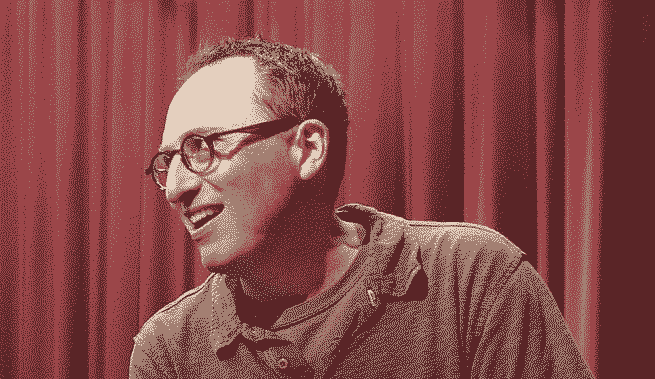 Jon Ronson
Jon Ronson
The show is loosely predicated on the theme of being bewildered recent arrivals in a new town, as Higgins and Ronson were not so long ago in Brooklyn. Higgins (a virtuoso comic, author and TV personality in her native Ireland) and Ronson (better known as the bestselling author of The Psychopath Test and The Men Who Stareat Goats) suggest there’s something particularly special about being part of the shared experience that is live comedy – that curious alchemy that occurs when people come together specifically to laugh (or not, depending on the quality of the acts).
“It’s connection,” Ronson says. “That’s what this show’s about. It’s about us and the audience connecting with each other… There’s something about being in the same room with somebody, reading each other’s body language, too.”
Higgins nods. “Definitely. It’s a communal thing; it’s a release.” Perhaps, she says, because audiences tend to be squeezed together in comedy clubs, acts get to be accidental anthropologists and observe at close quarters how individuals interact when exposed to jokes or funny tales. “You [might] see a couple,” Higgins says, “and you can tell that they’re checking each other’s responses. Like, can I laugh at this?”
Making people laugh has the potential to make the joke teller feel a bit better, too. “This is perfect for me,” says Ronson of the set-up, an intimate informal space in which the two hosts casually banter and tell stories in between a succession of comedians taking to the stage. “This is totally a therapy for me, doing this show.”
Comedy is more than just a pleasant way to pass an evening, humour more than something to amuse. They’re interwoven into the fabric of our everyday existence. Whether you’re sharing an amusing story down the pub, making a self-deprecating joke after someone pays you a compliment or telling a dark joke at a funeral, humour is everywhere. But what is it for? And can humour, as comedy, change how we feel, what we think or even what we do?
As an integral part of human interaction, humour has been on the minds of thinkers for centuries. As Peter McGraw and Joel Warner explain in their recent book, The Humor Code: A global search for what makes things funny, “Plato and Aristotle contemplated the meaning of comedy while laying the foundations of Western philosophy… Charles Darwin looked for the seeds of laughter in the joyful cries of tickled chimpanzees. Sigmund Freud sought the underlying motivations behind jokes in the nooks and crannies of our unconscious.”
One of the most enduring theories of humour arrived courtesy of the philosopher Thomas Hobbes. It asserts that humour is ostensibly about mocking the weak and exerting superiority. While this is clearly the function of some comedy – anyone who has flinched at a comic’s lame attempt to poke fun at, for example, disability will attest to this – it’s a relentlessly bleak and far from complete explanation of the purpose of humour.
“My first thought when I think about humour is it’s a great way for us to have evolved so we don’t have to hit each other with sticks,” says Scott Weems, a cognitive neuroscientist and author.
In his recent book, Ha! The science of when we laugh and why, Weems reviews a raft of academic studies, including those that have used scanning to show which parts of the brain respond when we encounter something funny. In the book, he posits a theory: essentially, that humour is a form of psychological processing, a coping mechanism that helps people to deal with complex and contradictory messages, a “response to conflict and confusion in our brain”.
This, in part, he says, is why we laugh in response to dark, confusing or tragic events that, on the face of it, shouldn’t be funny at all. Why, for example, would jokes circulate after 9/11 if we weren’t collectively grasping for ways to parse how unsettling and disruptive it was? Humour that is in bad taste or cruelly targeted at particular groups may generate conflict, but, for Weems, humour is our way of working through difficult subjects or feelings.
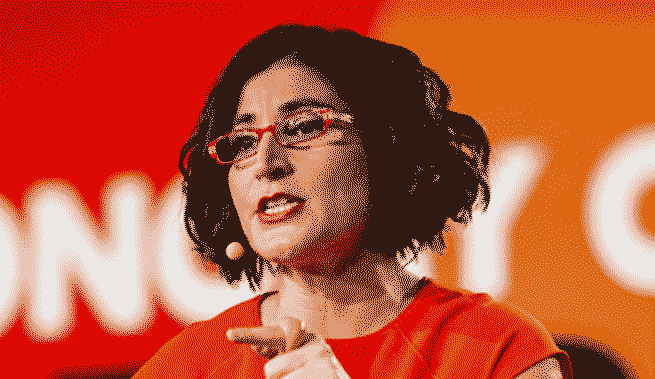 Negin Farsad
Negin Farsad
Over the years, researchers have built a substantial body of evidence that some types of comedy – including sophisticated satire, which is growing in popularity – perform a potent social function, from breaking taboos to holding those in power to account. Avner Ziv, who has written numerous books about humour, explores this theme extensively. As he writes in Personality and Sense of Humor, “comedy and satire possess a common denominator in that both try to change or reform society by means of humor. The two forms together constitute the best illustration there is of the social function of humor.”
You don’t have to look hard for examples of comics placing social justice at the centre of their work. New York-based Negin Farsad’s new book, How to Make White People Laugh, has been described as “memoir meets social-justice-comedy manifesto”, and the one-time social policy analyst talks about comedy as a platform for advancing social justice.
For some comedians, it’s not just about getting laughs – it’s about changing what we think and maybe even what we do. If there’s one comic who really personifies this, it’s Josie Long. A social justice activist and a comedian, Long has a reputation for delightful, optimistic, whimsical humour and nimble storytelling. She’s been doing live comedy since her teens and her latest BBC radio show, Romance and Adventure, has been widely lauded.
However, as her career has evolved, she has consciously put social and political topics at the heart of her act. She believes that comedians have a role to play in articulating and challenging some of the most pressing issues of the day.
“Politics can leave you beleaguered, plagued, miserable,” she says. “It’s that maxim where they say, ‘Satire is to afflict the comfortable and comfort the afflicted’. That’s why humour was important [to me]. It was a way to be useful for other people.” In her work, Long filters the political realities of contemporary Britain – especially what she sees as overt injustices by government – through humour.
It’s vital to understand the job comedy can do in actively providing a counterbalance to bigotry and prejudice, as well as understanding the types of humour that reinforce negative stereotypes, she says. “I want to make sure I’m punching up, not punching down.”
There is a “powerful place” both within the comedy spectrum and society, Long says, for the sort of audacious, disruptive and challenging observations of comics like John Oliver and Stewart Lee, who she admires. That they have a role in contemporary society beyond just making people laugh is undeniable; their work is evidence of the impact comedy can have more widely. “John Oliver is in a position where he has more people watching him than commentators,” she says.
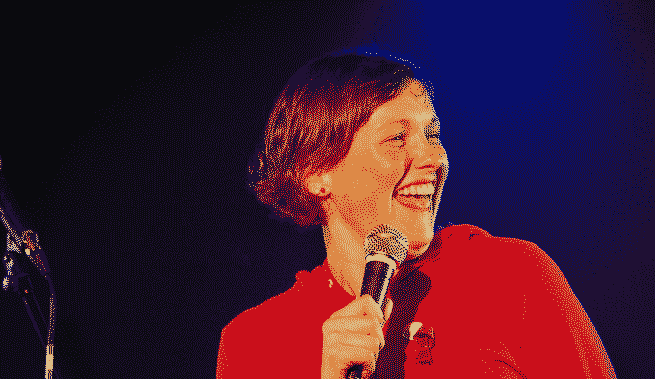 Josie Long
Josie Long
“Whatever happens in British society, stand-up immediately begins a process of discussing and reinterpreting it,” says Sophie Quirk, a University of Kent academic and the author of the 2014 book Why Stand-up Matters. “This process necessarily involves more than just an expression of the individual performer’s viewpoint. If we find a joke offensive, we protest by not laughing at it.”
In many ways, Quirk says, the sorts of observations made by comics such as Long are reinforced by her recent academic work, which has involved lengthy interviews with jobbing comics. “I think sometimes the literature ignores [the] fact that comedy does many things,” she says. “Joking socially is a way of bonding with people.” Political comedy, she argues, can foster a sense of shared ideals. “If you’re getting people together and talking about views that in the broader social context are quite marginal, and we’re all laughing together at those, then you’re kind of affirming them.”
“I think comedy can be a way of passing on nasty ideas,” she says, echoing Long, adding that it’s important to study in what ways humour reinforces or undermines stereotypes.
According to John Fugelsang – a New York-based political comedian, writer and actor who hosts the radio show Tell Me Everything – the recent ascendance of political comedy is one of the most fascinating aspects of the role of humour in US entertainment, and in the country’s broader culture, too. While you do sometimes just need something silly to watch, comedy has much greater resonance than it tends to be given credit for.
“I think it’s innate that if someone can make you laugh over what a mess everything is, then that person has not just earned your admiration but, on some level, has also earned your trust.” In the case of the USA, he says, the comedy has had to get so good because the news has got so bad. “This could be the best time ever to be a political comedian, and they may be needed more than ever.”
The best comedians, he argues, are our most effective anthropologists and cultural critics. “Political comedy, when done right, is a delivery system for truth.”
British comic Stephen K Amos sells out venues seating thousands, year in, year out, and has successful BBC Radio 4 programmes under his belt. Amos is convinced that when comics consciously tackle pressing or controversial social issues like racism and homophobia, they can reach people on a much more meaningful level than that achieved by briefly lifting someone’s mood. And while it may be difficult to quantify, he says, the social and psychological impact of comedy warrants much greater recognition.
Obviously, some comedy has no overt social goals at all – it’s not like the bulk of comedians are trying to change the world – but Amos contends that one of the singular properties of certain comedy “when done well” is the freedom to explore ideas in an unconventional or counterintuitive way, to subvert society’s norms.
The research backs this up. Although the role of comedy is to be entertaining first and foremost, through interviewing comedians, Sharon Lockyer, a sociology lecturer and the director of the Centre for Comedy Studies Research at Brunel University, has identified a number of possible other functions. These include challenging “stereotypes and dominant discourses that marginalise and stigmatise particular individuals”, for example in relation to disability and sexuality.
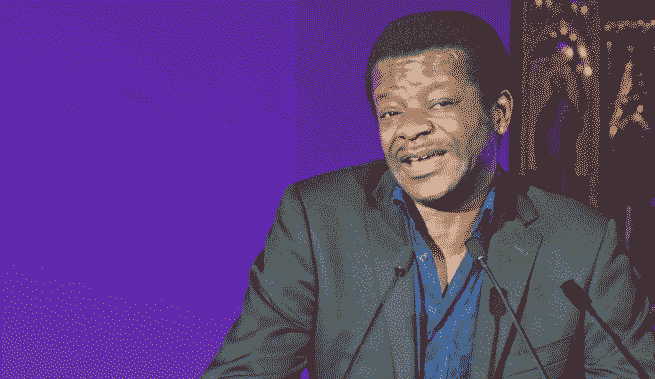 Stephen K Amos
Stephen K Amos
Amos’s work frequently tackles the issues of race and homosexuality by upending stereotypes. “I don’t do things for shock value,” he says. “I do stuff that matters to me.
“In the old days it was just about doing jokes. We’ve moved on – people are talking about things that matter.”
As an example of what comedy can do, Amos tells the story of a teenager who came up to him after a gig that featured Amos relaying his own tale of coming out as gay to his family. “The lad came up to me and went: ‘I’m here on my own… I think I’m gay and I’m going to tell my parents about it tonight.’” In another instance, a woman who brought her “very grumpy” dad to a gig told Amos that his set had made her father rethink his views on gay people.
“Oh my god, when you touch people on that level? What I’m doing is assisting you to release those chemicals in your body to make you laugh uncontrollably. And if that means challenging your preconceived ideas about who I am, great. We can run with that.”
“Very often what comedians can do is use logic to make painful things make sense,” says John Fugelsang. “They can articulate complicated emotions and arguments by using jokes as a framing mechanism, when just existing in the heart unexamined can be murky and amorphous.”
When it comes to issues like social justice, “humour can be a social corrective,” he says. “We see this in African American comedy, LGBT comedy, Latino comedy, religious humour, feminist humour. It validates shared experiences, gets us to think more flexibly and reframe situations in this shared experience we call life.”
Similarly convinced of comedy’s potential to change us is Alfie Moore. A cop by profession (currently on sabbatical) and also a regular on the BBC, Moore’s day job is a serious one, yet he harnesses his experience of it to push boundaries with his comedy. His stock-in-trade is poking fun at policing and walking “a fine line” between the serious and the silly, deploying jokes to expose nonsensical policies.
People come to his shows with their own ideas about policing, Moore says, but can leave with their perceptions altered about what the job is and how it slots into society. “One phrase I heard recently was, ‘If they’re laughing they’re listening’, and I think that’s a powerful quote.
“Nobody ever listened to me when I was in the police. I had no influence. I’d never met senior officers and I’d never met my chief constable. Now I’ve been out of the police, lots of people listen to me. The Radio 4 show got 1.4 million listeners per episode. I had chief constables emailing me.”
Liz Carr’s wickedly dark comedy pivots on challenging perceptions. Like Amos, Carr, who is also an actor and writer, says that to regard comedy merely as something frivolous would constitute a failure to comprehend its place in the world. With a career spanning radio, television (she currently stars in the hit drama Silent Witness), stand-up and sketch comedy, Carr was one of the pioneers in the flourishing arena of comics with disabilities.
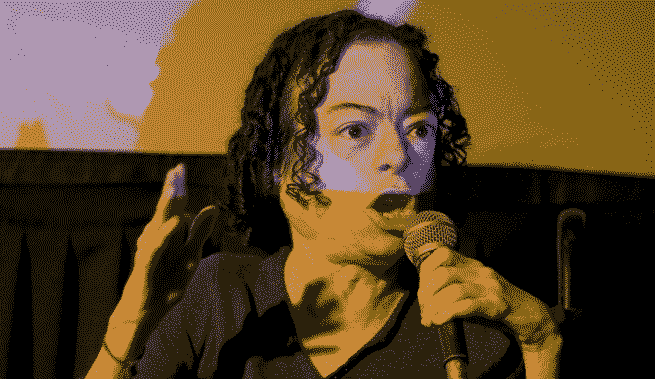 Liz Carr
Liz Carr
She’s known for repeatedly defying convention: in her comedy she uses language that’s ordinarily associated with demeaning disabled people – such as ‘crip’ (short for cripple) – as a way of reclaiming it. She’s about to ruffle a few more feathers by making a musical comedy about assisted dying, to be performed at London’s Royal Festival Hall in the autumn of 2016. It is, she says, another example of how humour can be trained on even the most sombre of topics and prod people towards rethinking preconceived notions.
“Often we don’t know how to react about things,” she says. “And there’s an expectation that you shouldn’t laugh at this or at that. I’m thinking about disability [here]. People are, ‘Oh… we don’t want to offend anyone.’ So there’s something about, if you can break that down in laughter, it’s like a relief and a release valve.
“Just your presence at any time changes people – changes interactions… I just think [comedy] opens people up in a way that I’ve not found any other medium works.”
Social scientist Sharon Lockyer has been studying the connection between comedy and disability. She’s published articles that examine disabled comedians’ views on the British TV comedy industry and on the cultural shift from disabled people being largely targets of comedy to being ‘comedy makers’.
Lockyer thinks that this shift and other changes, such as disparaging jokes becoming less tolerated, are indicative of wider changes in society. “The political potential of comedy clearly suggests that comedy is worth taking seriously,” she says.
Our appetite for comedy is growing. The biggest comics – from Sarah Millican and Michael McIntyre in the UK to Chris Rock and Amy Schumer in the USA – pull thousands upon thousands into gigs.
Hugely successful performers such as Louis CK and shows like Broad City have distributed their comedy over the internet, and there is a profusion of funny Vines and YouTube clips. Some of the best podcasts are comedic, including Marc Maron’s WTF, which gets a reported 5 million downloads a month and an average of 450,000 per episode. There’s even a podcast for comedians by a comedian, aptly titled The Comedian’s Comedian Podcast.
Academic researchers are also increasingly interested in humour, often being lumped together under the label ‘humorologists’. In 2009, a research lab dedicated to the “scientific study of humor, its antecedents, and its consequences” opened at the University of Colorado Boulder (the Humor Research Lab there is affectionately known as ‘HuRL’). And in the UK, the Centre for Comedy Studies Research (CCSR) was set up at Brunel University in 2013 to study the social impact of comedy. Then there’s the International Society for Humor Studies (ISHS) and its quarterly journal, HUMOR: International Journal of Humor Research, and the biannual journal Comedy Studies.
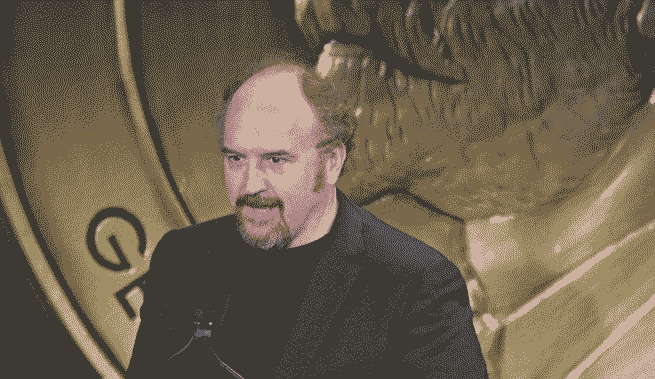 Louis CK
Louis CK
Peter McGraw, a coauthor of The Humor Code and an expert in emotion and behavioural decision theory at HuRL, was once told by an Ivy League acquaintance that studying humour was a “career killer”. But he suggests that because we are likely to experience humour much more often than emotions like fear or regret, studying it has as much academic merit as supposedly more worthy topics.
“People pursue [humour] in all these parts of their lives: their entertainment consumption, with their friends and families. And there’s evidence about using it to cope. Another thing I think is an important puzzle – is that when you try to be funny and you fail… you can create conflict. You can upset people. You can anger people.”
Only when Sophie Quirk links comedy to an established ‘serious’ subject, like politics, or to negativity do people think there is any value in it. “Just because it’s fun doesn’t mean it’s insignificant,” she says. “People think that [studying] fear must be very important. But laughter, the state of being amused – because it’s fun and exciting, that’s the reason it’s been neglected and that’s really, really odd.”
Research is exploring all kinds of aspects – from what happens in the brain when we ‘get’ a joke, to the cardiovascular benefits of a good laugh. It could also shed light on the nature of people who choose comedy as a career. For example, research presented in 2014 suggested that, despite their work, comedians had less activity in brain regions associated with the pleasure and enjoyment of humour compared to everyone else.
“This generation is when we are going to start seeing people studying humour like they studied intelligence,” Scott Weems tells me. “Humour may be the way of finally getting at what is special about the human condition… I don’t know if it will be in my lifetime, but we’re getting close.”
On the opposite side of the USA to Maeve Higgins and Jon Ronson, Jamie Masada is brimming with energy. He’s in the heavily upholstered upstairs bar overlooking the stage of the Laugh Factory comedy club on Sunset Boulevard, Los Angeles. He’s about to host a weekly open mic night where aspiring comics perform three minutes of the best material they can muster. It doesn’t matter that most of them will be rubbish (he’s seen it all in the 30 years he’s run the night) – at least they’ll have a go at making people laugh.
Masada, who migrated to America from Iran as a teenager, says with complete sincerity that if observing audiences night in, night out has taught him anything, it’s that comedy can have a profound impact on how we feel, and even how we act. He recounts seeing people arrive at comedy clubs looking utterly miserable, but then leave with a smile on their face, visibly transformed – married couples that turned up barely speaking leaving holding hands.
“It’s so fundamental to us,” he says. “We need comedy like air to breathe.” Masada’s ebullience could be read as self-serving (he does run comedy clubs after all), but that doesn’t mean he’s not on to something. For many comics there are profound mechanisms at play in their work, especially when the humour veers towards political and wider social issues.
“You should have a go!” he urges me, with a broad smile on his face. “Making someone laugh is the greatest power any human being can have!” He isn’t joking
This article was originally published by Mosaic under a CC-BY licence
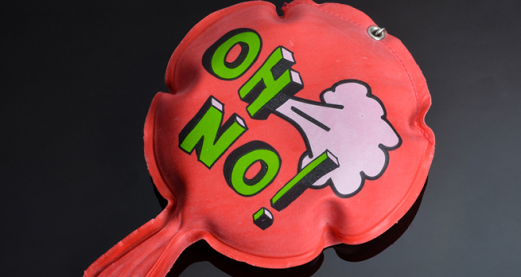
Rate and Review
Rate this article
Review this article
Log into OpenLearn to leave reviews and join in the conversation.
Article reviews